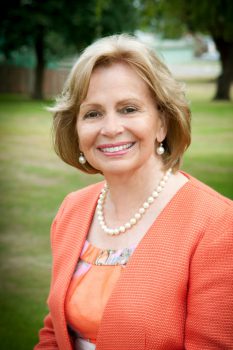Hobart City Council will become the latest Australian council to test elected officials for drugs and alcohol if a motion to extend mandatory testing to councillors is passed.

The motion, which includes publishing results on Council’s website, is expected to be introduced next month, a spokeswoman confirmed.
Staff at City of Hobart have been subject to testing since 2015 but if the motion is successful, the tests will be extended to councillors, who previously voted to exclude themselves.
It would make Hobart the second Tasmanian council to apply testing to councillors following West Tamar Council, where elected officials can undergo voluntary testing.
Drug testing at West Tamar ‘deemed a success’
West Tamar Mayor and president of the Local Government Association of Tasmania (LGAT) Christina Holmdahl says testing sends a positive message to the community.
“By taking part voluntarily in random drug and alcohol testing, councillors (at West Tamar) have demonstrated responsibility and unity with the management and staff of the West Tamar Council,” Cr Holmdahl told Government News.
“The positive message that’s been sent to our community is that councillors support best practise approaches to work health and safety and that they expect be held to the same high standards that apply to Council officers.”
A spokeswoman for West Tamar told Government News the program has operated successfully since its introduction, despite initial push back from unions.
“The management of West Tamar Council introduced drug and alcohol testing three years ago because of the potential health and safety benefits for our staff and community,” she said.
“The program has been deemed a success as we have been able to assist staff in dealing with any arising issues, ensuring a safer workplace and local community environment.”
The testing, involving the use of mouth swabs, was initially performed on all staff, the spokeswoman said, but it is now done at random two to three times a year.
The tests are carried out by an independent Tasmanian company, which also does additional urine testing if any substances are identified in swabs.
The spokeswoman said the results are considered strictly confidential and are not published.
The initial reaction from most staff was “generally positive”, she said.
The testing is primarily aimed at council staff, but it is also available to councillors who are on site on the day of a test on a voluntary basis.
Tasmania’s local government peak, LGAT, says it doesn’t hold a formal position in relation to drug testing of councillors.
In a statement to Government News a spokesman said LGAT has “worked to support best practice approaches to work health and safety through a range of workplace behaviour tools”, including an alcohol and other drugs policy and procedure for staff which covers voluntary testing.
Recognising dependency as a ‘treatable condition’
Queensland’s Rockhampton Regional Council introduced testing in 2013 after a coucillor, Glenda Mather, argued is was being used in mines at least one school at the time, and should also apply to local government.
According to Rockhampton’s Drug and Alcohol Policy, councillors and staff, including the mayor and senior officers, can be tested for amphetamines, cannabis, cocaine, opiates and benzodiazepines via a urine or saliva test where there is “reasonable suspicion” they are under the influence of alcohol or drugs, or as part of a random test.
Testing also applies to contractors, trainees and apprentices, volunteers and work experience students.
Council’s annual reports, which record misdemeanours, indicate that no councillor has ever tested positive.
The policy also states that council recognises drug and alcohol dependency as a treatable condition.
“Workers or Councillors who suspect they have an issue with drugs and/or alcohol are encouraged to seek advice regarding appropriate treatment options. Council offers employees and councillors the services under the EAP (Employee Assistance Program),” the policy says.
A spokesman for LGAQ said the Queensland local government peak has not taken a position on the issue of drug and alcohol testing for councillors. However he told Government News Rockhampton is one of several councils in the state which have drug and alcohol testing regimes, which mainly target workers.
A spokesman for the Local Government Association of NSW (LGNSW) said drug and alcohol policies are matters to be determined by each council but any move to publicly release results would likely be in breach of state privacy laws.
It is understood no Victorian councils have introduced drug or alcohol testing at work.





Leave a Reply